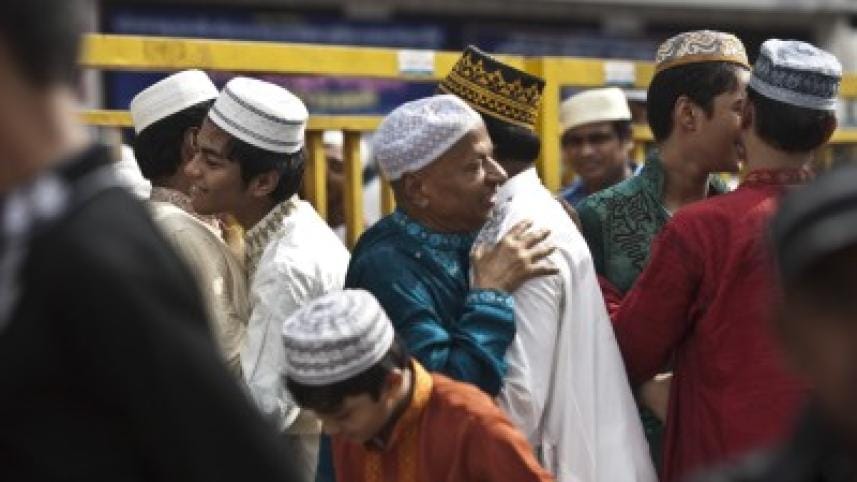A reflection on Eid, grief, and quiet compassion

Eid-ul-Azha has passed. For many, it was a time of joy and ritual—of family, food, and faith. But for some of us, it was quieter. More reflective. More gentle.
Last Eid-ul-Fitr, I spent the day in a hospital, holding onto hope as my father recovered from a stroke. While the rest of the world celebrated, I was surrounded by beeping monitors, whispered prayers, and the unknown. There was no new outfit, no festive recipes, and no cheerful post on social media. Just survival, and the quiet strength it demanded.
This Eid felt different. Not because everything is perfect, but because healing has begun—slowly, quietly. My heart holds more now: both ache and gratitude. I've learned to carry them together. That softness stayed with me through Eid-ul-Azha and led me to ask myself, again, what this festival is really about.
Eid-ul-Azha is rooted in the story of Prophet Ibrahim's (PBUH) devotion. It is a story of trust, surrender, and ultimately, mercy. The act of sacrifice is not the point—it is the willingness to submit to something higher, to let go of ego and entitlement, and to choose compassion. But in practice, we often lose that deeper meaning. We focus on the ritual, but overlook the values behind it. And in recent years, a troubling trend has grown more visible: the public sharing of graphic images of sacrificed animals.
Every year, my timeline fills with such posts, sometimes even before the Eid day begins. They appear without context or care, and they stay long after the meat has been distributed. For some, these images are part of tradition. For others—children, survivors of trauma, animal lovers, and many just going through a delicate time—they can be deeply disturbing.
This is not about judgment. It's about intention. Sacrifice, when reduced to imagery and shared without thought, becomes something else—performance. The sacred becomes spectacle. And this is where I find myself asking: what are we really offering, if our actions cause distress to others or rob a living being of dignity?
The Prophet Muhammad (PBUH) was known for his kindness to animals. The Quran repeatedly reminds us that compassion is a cornerstone of faith. And yet, during Eid-ul-Azha, a time meant to reflect those values, we sometimes stray furthest from them—not in the act itself, but in how we speak about it, how we display it, and how we forget that mercy is the heart of the story.
I say this not to diminish the importance of Qurbani but to honour it. To ask, with care: could we carry out this tradition in a way that upholds its spiritual weight? Could we move more mindfully? Could we share less, but feel more? Because not everyone's Eid looks the same. Some people are grieving. Some are recovering. Some, like I was last Eid, are simply holding on. And some feel deeply for the animals whose lives are part of this sacred offering.
What might it look like to include them in how we show up?
This Eid, I chose to move more slowly. I didn't post pictures. I watched more than I spoke. I held space for both joy and memory—for where I was last year, and where I am now. It made the day feel more honest. More whole.
If your Eid was joyful, I'm truly happy for you. If it was quiet, painful, or full of tender contradictions, I hope you found moments of peace. And for all of us, I hope we walk away from this Eid with a little more softness. Because Eid-ul-Azha isn't just about sacrifice; it's about what we're willing to surrender for the sake of something greater—like our pride, our need to show off, or our numbness to pain.
We often say "Eid Mubarak" without remembering what mubarak truly means—blessed, sacred, worthy. So maybe that's the question we carry forward: what would it mean to make this festival mubarak in spirit, not just in name?
Let it be marked not only by what we give, but how we give it. Not just in what we offer up—but in how we carry it through. With dignity. With humility. And always, with compassion.
Tasnuba Sinha is senior initiative manager at the BRAC Institute of Governance and Development (BIGD).
Views expressed in this article are the author's own.
Follow The Daily Star Opinion on Facebook for the latest opinions, commentaries and analyses by experts and professionals. To contribute your article or letter to The Daily Star Opinion, see our guidelines for submission.




 For all latest news, follow The Daily Star's Google News channel.
For all latest news, follow The Daily Star's Google News channel. 

Comments